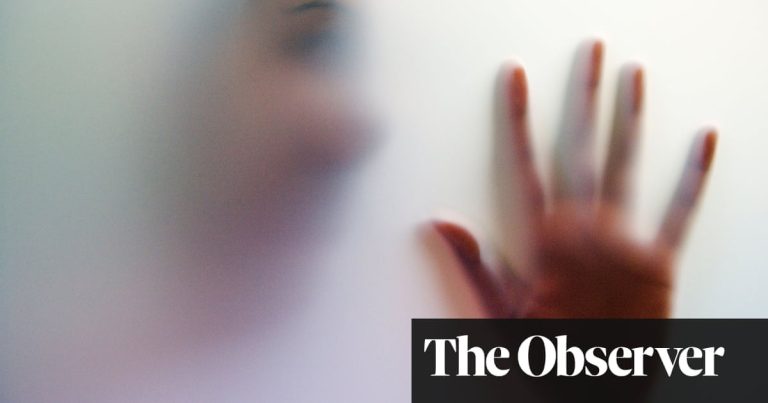Mentally ill patients are pinned face down by staff thousands of times a year, despite repeated warnings from ministers and health experts that this is dangerous.
Prone restraint, in which a person is held chest down to defuse an incident, has been a source of controversy for years and has been implicated in the deaths of several people suffering from mental health problems.
In 2014, the then coalition government responded to widespread concerns about its use by acknowledging that it “could lead to harmful consequences”. dangerous compression of the chest and airways and put the restrained person at risk” and called on mental health units in England to phase it out.
But new NHS Figures obtained by the Liberal Democrats show face-down restraint was used 5,247 times in 2023 and 3,732 times in the first 10 months of this year alone. “These results are alarming,” said MP Danny Chambers, the party’s mental health spokesperson.
The National Institute of Health and Care Excellence (Nice) and Care Quality Commission, the NHS care regulator, both advise mental health providers to avoid using restraint while lying down and, when using it, to do so do for the shortest possible time.
And government guidelines of 2021 clearly state that “there shall be no planned or intentional restraint of any person in a prone or face-down position on any surface, not just the ground.”
Holding someone face down is one of many forms of manual or chemical restraints that psychiatric hospital staff use when a hospitalized patient becomes disruptive, aggressive or violent. They can also restrain the person, handcuff them or tranquilize them.
The Mental Health Units (Use of Force) Act 2018 aimed to prevent the “disproportionate and inappropriate” use of any type of restraint in order to protect the dignity and respect of patients. It was also known as “Seni’s Law” because it was motivated by the death of Olaseni Lewisa black man who died in 2010 after being restrained by police officers while suffering a mental health crisis while being treated in an inpatient unit in London. The Conservative administration at the time delayed tabling the bill for three years.
Freedom of Information responses to the Liberal Democrats by 30 of England’s 54 NHS mental health trusts show that the use of any form of coercion continues to be widespread. A total of 16,186 patients were immobilized in 2022, 16,920 in 2023 and 14,642 in the first 10 months of this year.
These trusts recorded 900 cases in 2023 in which a patient was injured as a result of restraint and a further 702 between January and October this year. Staff were injured 2,278 times in 2022 while using restraints and 1,885 times in the first 10 months of this year.
Some trusts appear to use withholding, and particularly face-down withholding, much more than others. For example, the East London mental health group used some form of restraint 3,831 times between January and October – the highest number in England – while the equivalent body in Cambridgeshire and Peterborough l ‘done 147 times.
Similarly, trusts in Cumbria, Northumberland, Tyne and Wear used face-down restraint 495 times between January and October, while Cornwall Partnership only did so four times.
“Physical restraint can cause significant distress to vulnerable patients and cause serious injury to staff. The fact that some institutions physically restrain mental patients far more than others shows that our NHS services have been neglected and neglected for too long,” Chambers said.
It is “particularly worrying” to see restraint being used so persistently when the Seni law was finally implemented three years ago, he added. He urged ministers to launch an investigation into the situation, which arose because the last Conservative government failed to improve mental health care and “some of the most vulnerable people in our society are now paying the price.” price “.
after newsletter promotion
Andy Bell, chief executive of the Center for Mental Health think tank, said: “It is deeply troubling that restraint is used so frequently in mental health services despite legislation aimed at reducing the use of force and continuous labor. quality improvement.
“Inpatient services are under enormous pressure, with occupancy rates in some wards above safe levels, chronic staff shortages and dilapidated facilities making it more difficult to provide quality care. » Alternatives to stays in psychiatric hospitals are urgently needed, he added.
Mind, the mental health charity, says: “Healthcare staff have a difficult job and must intervene when someone is at risk to themselves or others. However, restraint should only be used as a last resortwhile prevention and de-escalation have not worked.
A spokesperson for the Department of Health and Social Care said: “This data is incredibly worrying. Patient safety is paramount, and everyone receiving treatment in an inpatient mental health facility deserves safe, high-quality care, and to be treated with dignity and respect, with face-down restraints not used only as a last resort.
“Our Mental Health Bill will ensure that people with the most serious mental health problems receive better and more personalized treatment that is appropriate, proportionate and compassionate to their needs.
“We will also work with the NHS to transform care and recruit 8,500 more mental health workers to children and adults to reduce delays and provide faster care. »


